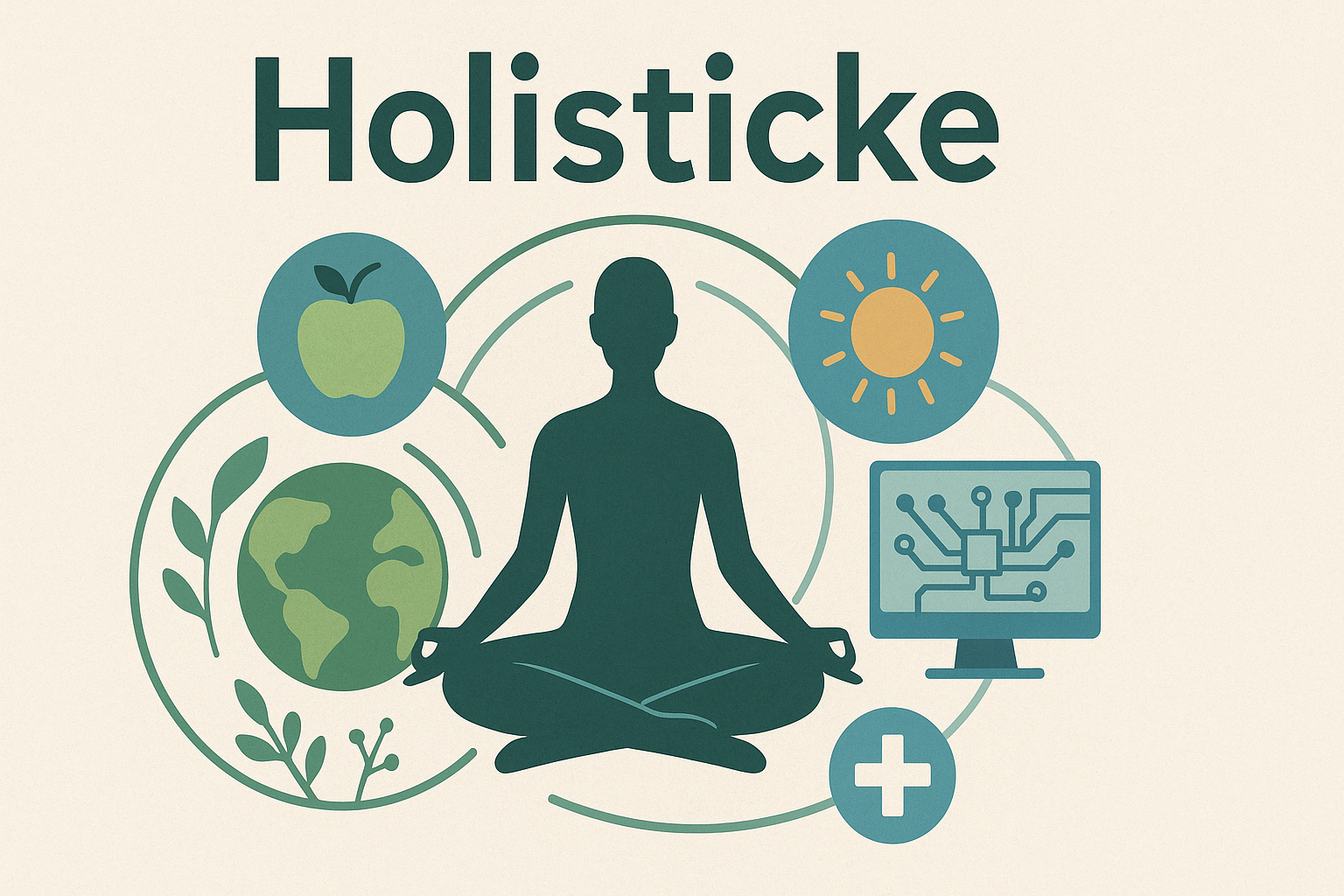In a world that often prioritizes speed, efficiency, and specialization, the concept of Holisticke emerges as a refreshing reminder of balance, unity, and integration. At its essence, Holisticke means looking at the bigger picture and recognizing that the whole is greater than the sum of its parts. Instead of focusing on fragments or isolated aspects of life, Holisticke emphasizes interconnection. This approach can be applied across many areas—healthcare, education, technology, business, and even personal growth.
The following article explores the depth of Holisticke, its history, practical applications, and why it is a vital philosophy in our modern era.
Understanding the Core Meaning of Holisticke
Holisticke is rooted in the idea of seeing systems and people as complete entities rather than broken pieces. For example, if someone is sick, a Holisticke approach does not merely treat the symptom but considers the patient’s lifestyle, mental well-being, environment, and even spiritual balance. The same thinking can be extended to other domains, such as education where the goal is to nurture well-rounded individuals rather than simply producing high test scores.
This worldview stands in contrast to reductionism, which isolates individual components. While reductionist approaches are effective in certain cases, Holisticke thinking reveals the underlying connections that might otherwise be overlooked.
Historical Roots of Holisticke Philosophy
Although the word Holisticke feels modern, the philosophy behind it has deep historical roots. Many ancient civilizations practiced holistic traditions long before the term existed.
-
In Ancient India, Ayurveda emphasized harmony between the body, mind, and environment.
-
In Traditional Chinese Medicine, balance between Yin and Yang was seen as the foundation of health.
-
Greek philosophy, especially Aristotle, highlighted that a whole cannot be fully understood by analyzing its parts alone.
-
Indigenous wisdom across cultures often placed emphasis on interconnectedness between humans, animals, plants, and the land.
Holisticke, therefore, is not just a trendy idea; it is a timeless perspective re-emerging to address modern challenges.
Holisticke in Healthcare
One of the most recognized applications of Holisticke is in healthcare. Conventional medicine often isolates symptoms and uses targeted treatments. While effective in emergencies, this approach can overlook root causes. Holisticke healthcare, on the other hand, focuses on prevention, balance, and long-term well-being.
Some key principles include:
-
Encouraging whole-food nutrition instead of processed diets.
-
Promoting mindfulness, yoga, and stress reduction techniques.
-
Combining natural remedies with modern medicine when beneficial.
-
Considering lifestyle, environment, and emotional health as part of the healing process.
This patient-centered model does not reject modern science but integrates it with broader practices for complete care.
Holisticke in Education
Education systems worldwide are shifting from rote memorization to Holisticke models of teaching. In this context, learning is not just about passing exams—it is about nurturing creativity, curiosity, and emotional intelligence.
A Holisticke education emphasizes:
-
Developing critical thinking and problem-solving skills.
-
Supporting emotional well-being and resilience.
-
Encouraging physical activity and overall health.
-
Teaching values such as empathy, diversity, and cooperation.
Graduates from such systems are better equipped for meaningful contributions to society, as they have a balanced foundation in academics, emotional intelligence, and social responsibility.
Holisticke in Business and Leadership
In the corporate world, the Holisticke approach is revolutionizing how organizations operate. Instead of focusing solely on profit, businesses adopting Holisticke practices integrate sustainability, employee welfare, and community impact.
This can be seen in:
-
Work cultures that prioritize employee mental health and work-life balance.
-
Eco-friendly practices that reduce environmental damage.
-
Transparent relationships with customers and communities.
-
Ethical sourcing and fair trade initiatives.
Holisticke leadership fosters long-term success because it acknowledges the well-being of people and the planet alongside economic goals.
Holisticke in Technology and Innovation
Technology is another area where Holisticke approaches are making a difference. Traditional innovation often emphasizes functionality, but Holisticke innovation considers the broader consequences of new developments.
For instance:
-
Smart cities integrate human needs, sustainability, and technology in harmony.
-
Renewable energy systems combine solar, wind, and storage to create resilient networks.
-
Ethical digital platforms consider user experience, privacy, and social well-being.
By aligning technological progress with human and environmental needs, Holisticke innovation ensures that development is sustainable and beneficial for generations to come.
Holisticke in Personal Growth and Lifestyle
On an individual level, adopting a Holisticke lifestyle means striving for balance in all aspects of life. Instead of chasing only material success, people are increasingly seeking wellness, purpose, and harmony.
This can include:
-
Practicing mindfulness and meditation for mental clarity.
-
Building meaningful relationships that foster emotional health.
-
Eating whole, nutritious foods for physical strength.
-
Pursuing passions and hobbies to nourish the spirit.
-
Aligning career goals with personal values for a fulfilling life.
Holisticke living promotes alignment between mind, body, and purpose, creating resilience against the pressures of modern society.
Why Holisticke Matters in Today’s World
The 21st century presents unique challenges: climate change, mental health crises, technological disruptions, and social divisions. Fragmented solutions often fail to address these interconnected issues. Holisticke offers a more comprehensive path forward.
By applying Holisticke principles, societies can:
-
Build resilient healthcare systems.
-
Educate compassionate and innovative leaders.
-
Foster sustainable businesses.
-
Create technology that enhances life rather than disrupts it.
-
Empower individuals to live in harmony with themselves and the environment.
Read also: How to Cancel Game Mopfell78: A Step-by-Step Guide for Gamers
Conclusion
Holisticke is not just a word—it is a transformative philosophy that touches every corner of modern life. From healthcare and education to technology and personal growth, it emphasizes integration, balance, and harmony. In an age where division and disconnection are common, Holisticke reminds us of the power of wholeness.
By embracing Holisticke thinking, individuals and societies can create healthier, more sustainable, and more fulfilling lives. It is a timeless concept, rediscovered at a moment when the world needs it most.


